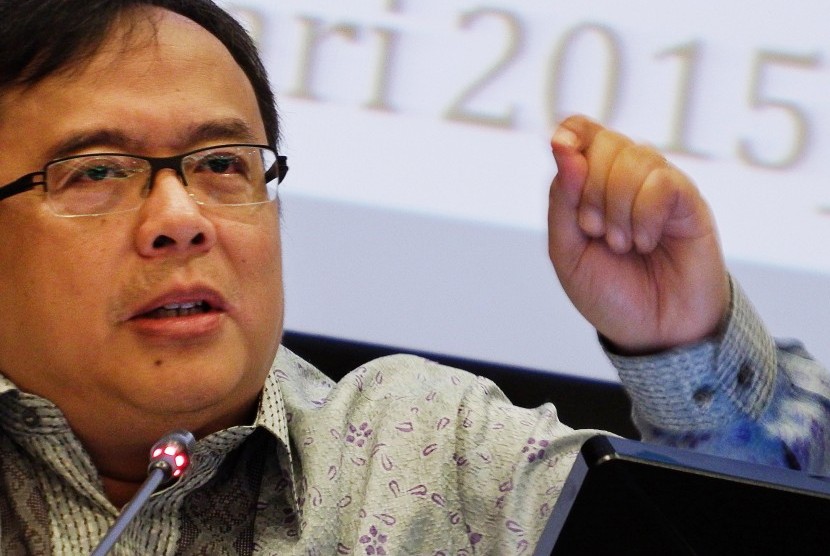REPUBLIKA.CO.ID, JAKARTA -- The government will strive to keep the budget deficit in 2015 as close to the target set in the revised budget by 1.9 percent of the gross domestic product (GDP), Finance Minister Bambang Brodjonegoro stated.
"The important thing is to keep the budget deficit low. At least the deficit is similar to last year's value of 2.2 percent," Bambang remarked here on Thursday.
Bambang explained that the budget deficit will widen as the tax revenue will not meet the target. He noted that in order to cover the deficit, the government will add debt.
"We will add debt but not to the 'market.' It can be from multilateral and bilateral loans," he explained.
With regard to reducing the government's spending as an alternative measure to keep the budget deficit low, Bambang ensured that the effort will not be pursued in the near future.
"We will not cut spending at the beginning. The spending is not 100 percent but 90-95 percent," he remarked.
Target revenues and grants in the 2015 revised state budget is set at Rp1,761.6 trillion, and the limit of state spending amounted to Rp1,984.1 trillion. Thus, the budget deficit is set at Rp222.5 trillion, or 1.9 percent of the GDP.
Meanwhile, the realization of the budget deficit by the end of 2014 was recorded at Rp227.4 trillion, or 2.26 percent of the GDP, which was derived from revenues and grants amounting to Rp1,537.2 trillion and state spending worth Rp1,764.6 trillion.
Related to the realization of the state revenue, the tax revenue collection until April 30, 2015, only reached Rp310.1 trillion, or 23.96 percent of the target in the revised state budget worth Rp1,294.2 trillion.
Earlier, Bank Indonesia (BI) expressed optimism that the country's economy would grow as expected, with maximum government contribution in budget spending in 2015.
"The economic growth target will remain the same at 5.4-5.6 percent," BI Governor Agus Martowardojo stated at the Institute of International Finance (IIF) Asia Summit here on Thursday.
Agus noted that the target will be reached through large government spending on infrastructure development to boost investment and consumption as the drivers of economic growth.
He hoped that the structural reforms to control inflation and reduce the current account deficit can continue to be implemented to counter external negative sentiments.
He said that the global slowdown had yet to be closely observed especially with the rising value of the US dollar and falling prices of commodities.
There is also the risk of capital outflows from the Indonesian stock market, he pointed out.
He also warned of the impact of the plan to abolish liquefied petroleum gas (LPG) subsidy and increase electricity tariff on the inflation.
"The plan has to be implemented carefully to keep inflation under control at around 4 percent more or less," he affirmed.
Meanwhile, Executive Director of Mandiri Institute Destry Damayanti stated that a trigger is necessary to drive economic growth to meet the target.
The trigger has to be created by the government by facilitating investment from the private sector to contribute to economic development.
"A trigger is needed such as the simplification of licensing procedures," she explained.
She said Mandiri has forecast that the country's economic growth could reach 5.3 percent this year.
It will be difficult to achieve a growth of 5.7 percent this year, which is still required by the new government for consolidation.
"This year is a transitional period from the old to the new government. There are changes in policies and priorities. We have lost time of about one quarter as we were involved in the budgeting process, etc.," she added.


